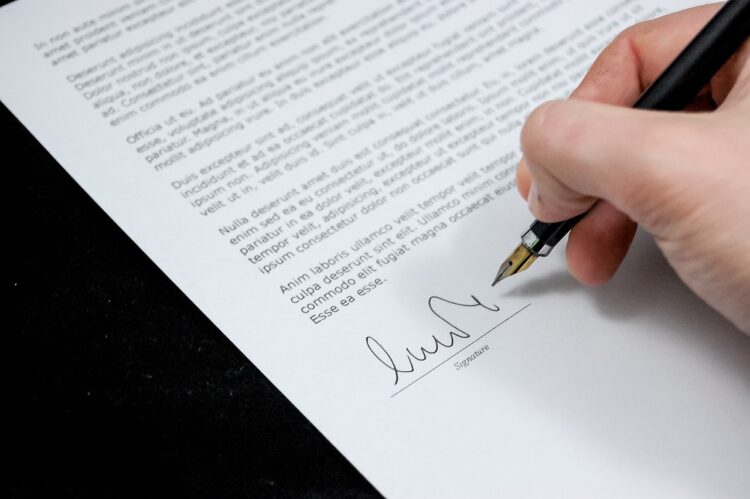
Divorce is a significant life event that brings about profound changes in one’s personal and financial circumstances. Amidst the emotional upheaval and practical adjustments that accompany divorce, or the breakdown of any long-term committed relationship, it’s essential not to overlook the importance of updating your will.
A will serves as a critical legal document that outlines your wishes regarding the distribution of your assets and the care of your loved ones after your passing. In this article, we explore why updating your will after a divorce is imperative and the key considerations to keep in mind during this process.
Addressing changes in beneficiaries
One of the most crucial reasons to update your will after a divorce is to revise the beneficiaries named in your will. In many cases, spouses designate each other as primary beneficiaries in their wills. However, following a divorce, it’s unlikely that you would want your ex-spouse to inherit your assets. Updating your will allows you to designate new beneficiaries who reflect your current wishes, such as children, other family members, or charitable organisations.
Updating executor and trustee designations
In addition to revising beneficiaries, it’s essential to reconsider the appointment of executors and trustees in your will. Executors are responsible for managing your estate and ensuring that your wishes are carried out, while trustees oversee any trusts established in your will. If your ex-spouse was previously designated as an executor or trustee, you may wish to appoint someone else who you trust to fulfil these roles impartially and effectively.
Protecting assets for children
If you have children from your marriage, updating your will is crucial to ensure that their interests are adequately protected. This may involve establishing trusts to manage and distribute assets to your children in a manner that safeguards their financial security and well-being. Additionally, you may need to designate guardians to care for your children in the event of your passing, particularly if your ex-spouse is no longer the preferred choice for guardianship.
Addressing jointly held assets
Many married couples hold assets jointly, such as real estate, bank accounts, or investments. After a divorce, the disposition of these jointly held assets may change. Updating your will allows you to clarify your intentions regarding these assets and ensure that they are distributed according to your wishes, rather than defaulting to rules of intestacy or unintended outcomes.
Reviewing powers of attorney and healthcare directives
Along with your will, it’s essential to review and update other estate planning documents, such as powers of attorney and healthcare directives. These documents grant authority to individuals to make financial and healthcare decisions on your behalf if you become incapacitated. After a divorce, you may no longer want your ex-spouse to have such authority, necessitating revisions to these documents to reflect your current preferences.
Considering pension assets
Pensions are often significant assets that need to be addressed in estate planning, especially after a divorce. Following a divorce, it’s essential to review and update any beneficiary designations on your pension accounts to ensure that they align with your current wishes. Failure to update beneficiary designations could result in unintended consequences, such as your ex-spouse inheriting pension benefits you intended for other beneficiaries.
Avoiding legal challenges and disputes
Failing to update your will after a divorce can lead to unintended consequences and potential legal challenges. In the absence of a revised will, your ex-spouse may still have a claim to your estate under outdated provisions, leading to disputes among beneficiaries and protracted legal proceedings.
Updating your will ensures clarity and reduces the likelihood of conflicts arising after your passing. By revising beneficiaries, appointing new executors and trustees, protecting assets for children, addressing jointly held assets, and reviewing other estate planning documents, you can safeguard your legacy and provide peace of mind for yourself and your family during times of transition and beyond.
For personalised advice and assistance in creating a robust will, consult with the legal professionals at Hutchinson Thomas Solicitors. Our experienced team can guide you through the process, ensuring that your wishes are legally sound, and your loved ones are protected.
If you would like more information or advice on any issues relating to wills, trusts or probate, contact Louise Williams on 01639 640 153 or email louise.williams@hutchinsonthomas.com
